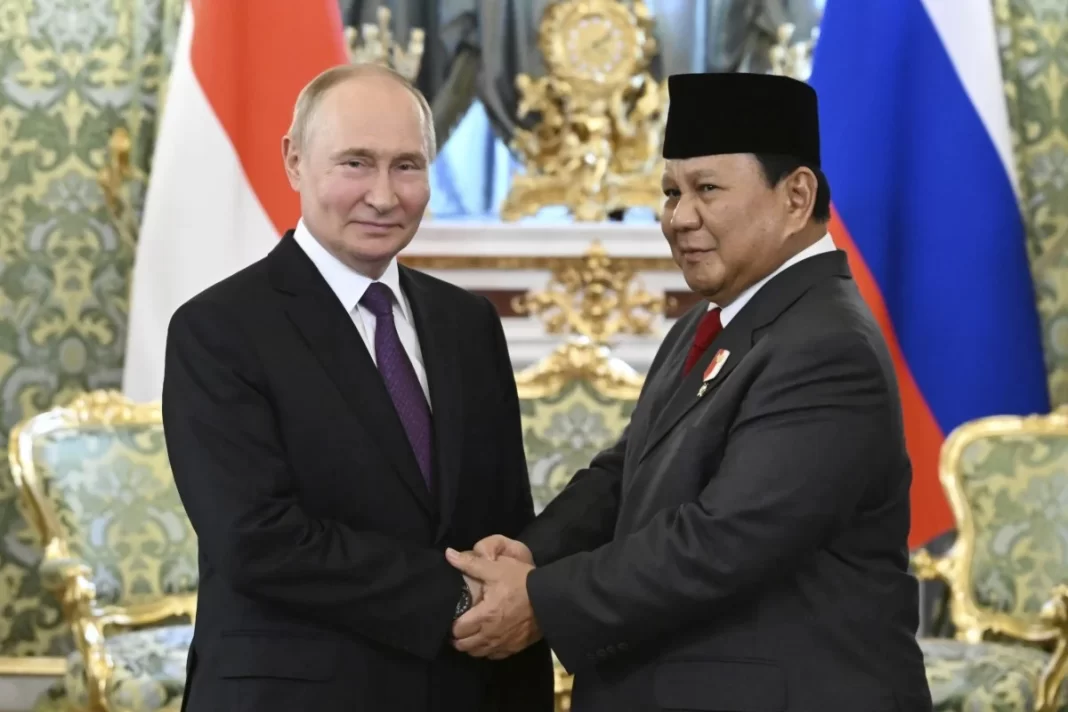Indonesia is exploring the possibility of importing discounted Russian oil following its entry into the BRICS bloc. Officials have highlighted the economic benefits of such a move, but analysts caution that geopolitical risks must be carefully evaluated.
Opportunity Emerges with BRICS Membership
Indonesia’s recent accession to BRICS, making it the bloc’s tenth full member, has opened new avenues for trade and collaboration. The alliance, comprising Brazil, Russia, India, China, and South Africa, was expanded in January to include Indonesia, Iran, the UAE, Egypt, and Ethiopia.
This membership strengthens Indonesia’s ability to negotiate advantageous deals, particularly with Russia. Government officials noted that importing discounted Russian oil could significantly ease the strain on Indonesia’s trade balance and energy costs.
Economic Appeal of Discounted Oil
Russia, facing Western sanctions following its 2022 invasion of Ukraine, has been forced to sell oil at a discount. Major buyers like China, India, and Turkey have taken advantage of these reduced prices. Indonesian officials believe following suit could help stabilize the nation’s energy security and reduce costs.
Energy experts estimate that Russian crude could be $20 to $22 cheaper per barrel than global benchmarks. For Indonesia, which relies heavily on imported oil, this price reduction could provide relief for its energy-dependent economy.
Geopolitical Risks and Western Sanctions
While discounted oil offers clear financial benefits, the geopolitical implications are significant. Western nations have imposed strict sanctions on Russia, including a price ceiling on its crude oil exports. Indonesia must carefully navigate these restrictions to avoid potential repercussions.
The West, particularly the United States, perceives Russia as a geopolitical adversary. Closer alignment with Russia could strain Indonesia’s relationships with key trading partners in the West and the Indo-Pacific region. Maintaining adherence to the G7’s price ceiling and monitoring compliance with sanctions frameworks will be critical for mitigating risks.
Balancing Global Partnerships
Indonesia’s potential decision to import Russian oil reflects its broader strategy to balance relationships between major global powers. President Prabowo Subianto’s “good neighbor policy” seeks to engage with both Western-aligned nations and BRICS members like China and Russia.
Joining BRICS provides Indonesia with a platform to strengthen its role in international politics. The bloc’s counterweight to Western-led institutions allows Indonesia to diversify its partnerships while avoiding over-dependence on any one geopolitical sphere.
Domestic Considerations and Energy Security
Before committing to Russian oil imports, Indonesia must carefully evaluate domestic factors. Analysts urge the government to consider its current fuel reserves, domestic oil production, and the feasibility of Russian crude imports.
Indonesia has previously expressed interest in Russian oil but has hesitated due to concerns over international regulations. By ensuring compliance with global trade rules, the country hopes to avoid backlash while reaping the benefits of cheaper energy.
Impact of U.S. Foreign Policy
The geopolitical landscape is further complicated by the incoming U.S. administration under President-elect Donald Trump. Trump’s approach to BRICS and its members could influence Indonesia’s decisions. While BRICS challenges American interests, Indonesia aims to maintain positive relations with the U.S. to attract investment and support.
Balancing Act in Global Politics
Indonesia’s potential pivot towards Russian oil underscores its attempt to assert economic independence and leverage its new BRICS membership. However, this move also puts Jakarta in a delicate balancing act. With strong economic ties to both Western nations and BRICS members like China and Russia, Indonesia must carefully navigate the geopolitical minefield. Analysts warn that any misstep could strain crucial relationships with Western allies and impact future trade agreements or foreign investments. Prabowo’s administration will need to ensure that its actions align with broader national interests while mitigating the risk of being caught in the crossfire of escalating global tensions.
Looking Ahead
Indonesia’s interest in Russian oil underscores its strategic approach to international diplomacy and energy security. As a new member of BRICS, the nation is poised to leverage its position for economic and political gains. However, balancing these opportunities with potential risks will require careful planning and diplomacy. By navigating the complexities of global trade and geopolitical alliances, Indonesia can position itself as a resilient and adaptive player on the international stage.

